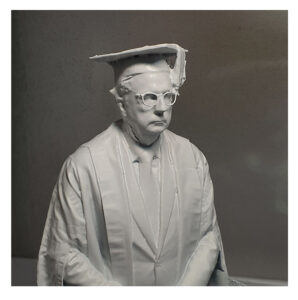
The role of a university's Vice-Chancellor is pivotal, embodying leadership, vision, and stewardship in academic excellence, innovation, and community engagement. If Mark Scott assumed the position of Vice-Chancellor at the University of Sydney, he would have likely brought a wealth of experience and a vision that aligns with the institution's commitment to education, research, and societal impact.
A visionary leader at the helm of a prestigious academic institution such as the University of Sydney would likely embody key traits and responsibilities essential for steering the university forward. The role demands a comprehensive understanding of the complex landscape of higher education, a commitment to fostering academic rigor, and a dedication to shaping future global leaders.
Mark Scott, as a leader, is expected to chart a path that aligns with the university's long-standing values, while also adapting to the dynamic demands of the contemporary educational landscape. His leadership would likely aim to foster an inclusive and diverse community, championing equality, innovation, and academic freedom.
In his potential tenure, Scott would likely focus on enhancing the university's global standing by fostering a culture of academic excellence and research innovation. The Vice-Chancellor plays a crucial role in attracting and retaining exceptional faculty members and students, fostering an environment conducive to cutting-edge research and learning.
Another significant responsibility would be ensuring that the university remains at the forefront of technological advancements and educational methodologies. Embracing digital innovation, Scott might emphasize the integration of technology into teaching, research, and administrative functions, ensuring that the institution remains adaptive and competitive in the global academic arena.
Furthermore, community engagement and partnerships play a vital role in a Vice-Chancellor's agenda. Scott may strive to strengthen the university's relationships with local and global communities, forging partnerships with industries, government bodies, and other academic institutions to drive collaborative initiatives for societal impact and advancement.
In fostering a strong culture of diversity and inclusion, Scott would likely aim to create an environment where all voices are heard and valued, nurturing an atmosphere where every individual, irrespective of background, feels welcome and supported.
Moreover, ensuring financial sustainability and effective resource allocation would be crucial under Scott's potential leadership. Balancing the budget, securing funding, and allocating resources to support various academic programs and research endeavors would likely be areas of focus.
Mark Scott, assuming the role of Vice-Chancellor at the University of Sydney, could potentially lead with a strategic vision that leverages the institution's strengths, addresses its challenges, and propels it towards even greater heights of academic distinction and societal impact.
In conclusion, a Vice-Chancellor such as Mark Scott, if in this esteemed role, would be expected to steer the University of Sydney towards a future marked by academic excellence, innovation, inclusivity, and a strong commitment to societal welfare. His leadership would play a significant role in shaping the university's trajectory and leaving a lasting impact on the institution and its stakeholders.